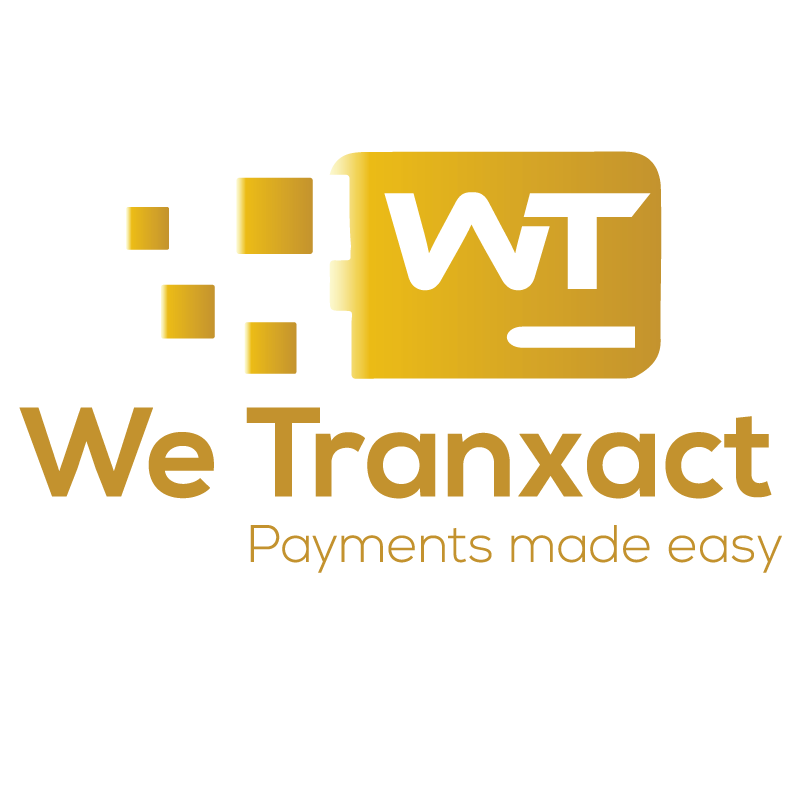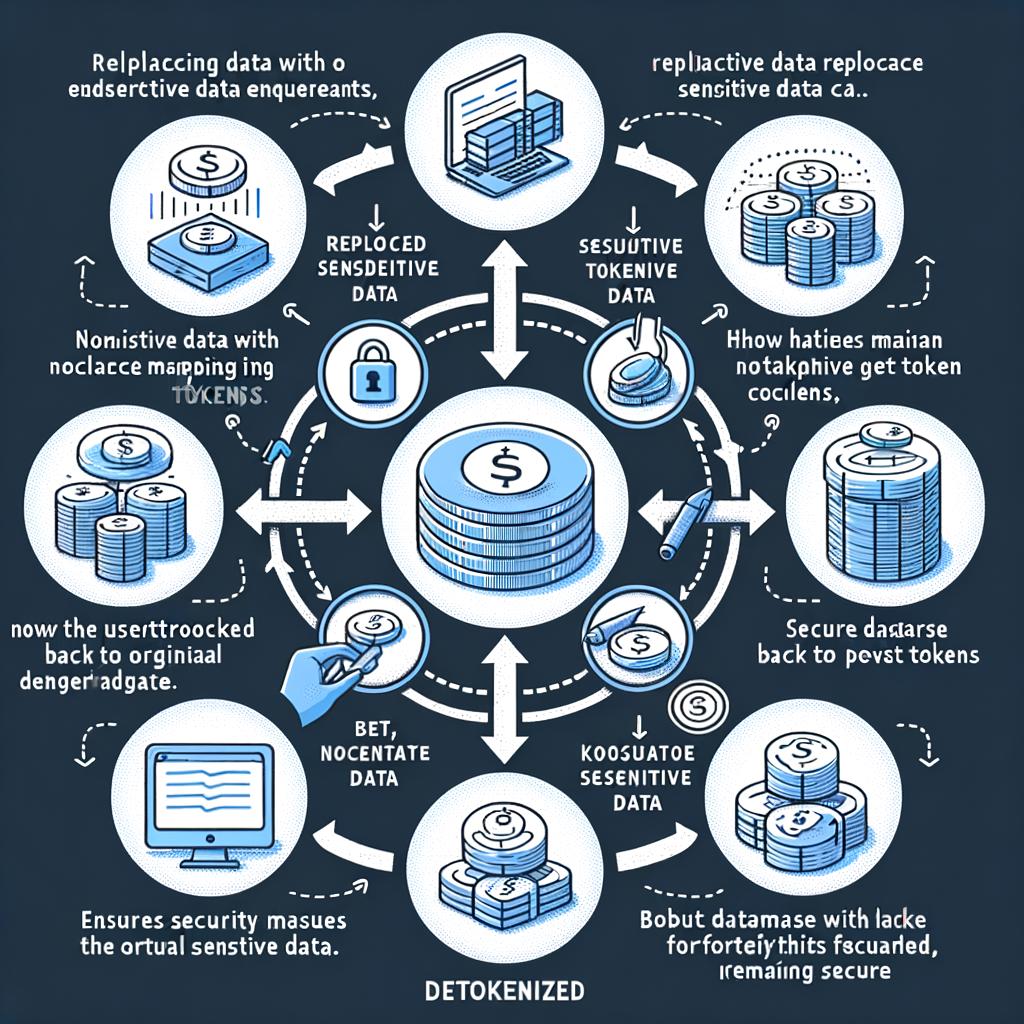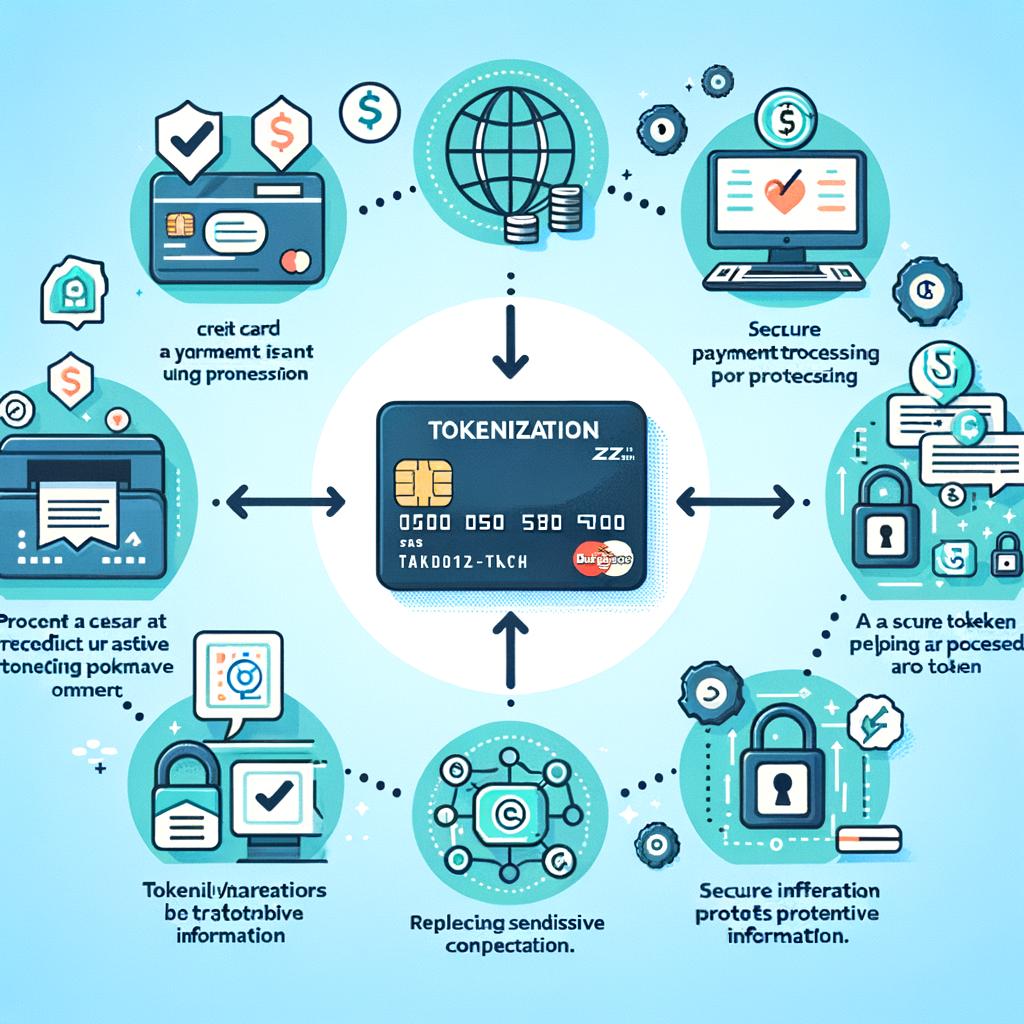Tokenization in Payment Processing: Enhancing Data Security
Hey guys, are you tired of constantly worrying about the security of your payment information online? Well, fear not! In this article, we’re diving into the world of tokenization in payment processing and how it’s revolutionizing data security. So sit back, relax, and get ready to learn all about this game-changing technology.
Tokenization: How It Works and Why It’s Essential for Data Security
When it comes to processing payments online, data security is of utmost importance. Tokenization plays a crucial role in enhancing data security by replacing sensitive payment information with unique tokens. This process ensures that the actual payment data is not stored in the system, reducing the risk of data breaches and theft.
So, how does tokenization work? Essentially, when a customer enters their payment details during a transaction, the sensitive data is immediately replaced with a randomly generated token. This token is then used to process the payment and is completely meaningless to anyone who might try to intercept it. By implementing tokenization in payment processing, businesses can provide a secure and seamless experience for their customers while safeguarding sensitive financial information.
Benefits of Tokenization for Payment Processing
Tokenization in payment processing provides numerous benefits for enhancing data security. One key advantage is the reduction of sensitive information exposure. By replacing card details with encrypted tokens, merchants drastically lower the risks associated with storing and transmitting payment data. This not only safeguards customer information but also helps to prevent fraud and cyber attacks.
Furthermore, tokenization simplifies compliance with industry regulations such as PCI DSS. Since cardholder data is never stored on the merchant’s system, the scope of PCI requirements is significantly reduced. This not only saves time and resources but also builds trust with customers who are increasingly concerned about the security of their personal information. With tokenization, businesses can streamline payment processing while ensuring the highest level of data protection.
| Benefits of Tokenization | Explanation |
|---|---|
| Enhanced Security | Protects customer data from theft and fraud |
| PCI Compliance | Reduces scope of requirements and simplifies adherence |
Best Practices for Implementing Tokenization in Your Business
Tokenization is a crucial step in ensuring the security of your business’s payment processing system. By replacing sensitive data with tokens, you can significantly reduce the risk of data breaches and fraud. One of the is to work with a reputable payment processor that offers robust tokenization technology. This will help ensure that your customers’ payment information is securely tokenized before being transmitted for processing.
Another important practice is to regularly monitor and update your tokenization system to stay ahead of potential security threats. By conducting periodic security audits and staying informed about the latest industry standards, you can ensure that your tokenization system remains effective in protecting your business and customer data. Additionally, training your staff on the importance of tokenization and data security can help create a culture of vigilance within your organization. Remember, when it comes to data security, prevention is always better than a cure.
| Benefits of Tokenization | Implementing |
|---|---|
| Enhanced data security | Work with a reputable payment processor |
| Reduced risk of data breaches | Regularly monitor and update tokenization system |
| Fraud prevention | Train staff on data security best practices |
Choosing the Right Tokenization Solution for Enhanced Data Protection
When it comes to protecting sensitive payment data, choosing the right tokenization solution is crucial for businesses. With the rise of data breaches and cyber threats, implementing a robust tokenization method can greatly enhance data security. By replacing sensitive information with unique tokens, businesses can ensure that confidential data is protected throughout the payment processing cycle.
One key factor to consider when selecting a tokenization solution is the level of encryption it provides. Look for a solution that offers strong encryption algorithms, such as AES-256, to safeguard payment data effectively. Additionally, consider the scalability and flexibility of the tokenization solution to ensure it can adapt to your business needs. By prioritizing data protection with the right tokenization solution, businesses can build trust with customers and mitigate the risk of data breaches.
To Conclude
As we’ve explored the world of tokenization in payment processing, we’ve uncovered the incredible benefits of this technology when it comes to enhancing data security. By replacing sensitive information with unique tokens, we can rest assured that our transactions are protected from potential threats.
So, the next time you make a purchase online or swipe your card at a store, remember the power of tokenization working behind the scenes to keep your data safe. It’s a small but mighty tool in the fight against cybercrime, and we can all sleep a little easier knowing it’s on our side.
Stay tuned for more insights and updates on the ever-evolving world of payment processing. Until next time, keep swiping, tapping, and spending securely with tokenization by your side. Cheers to safer transactions for all!






